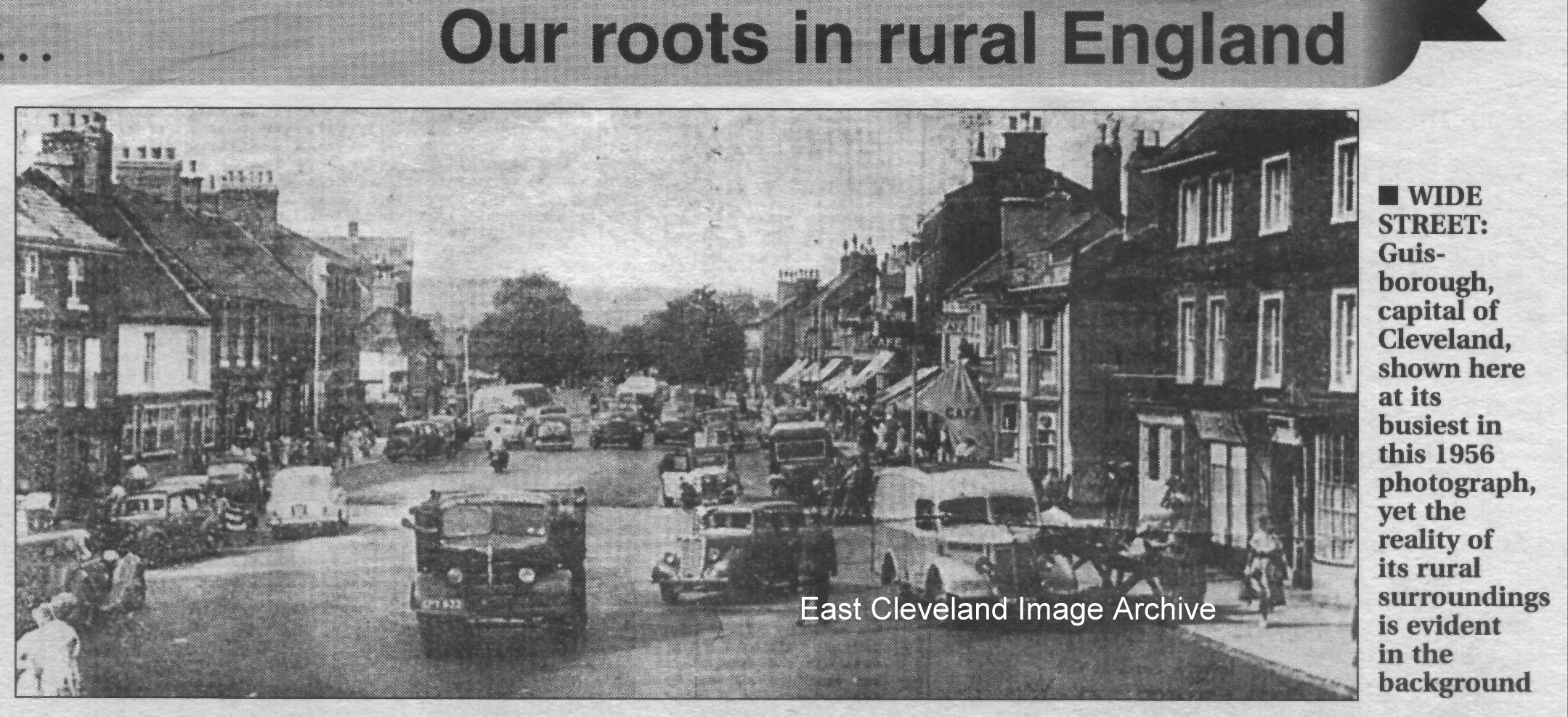
Now this view of Guisborough I can relate with.
Image (from a cutting) courtesy of Derick Pearson.
|
|
||
 Now this view of Guisborough I can relate with. 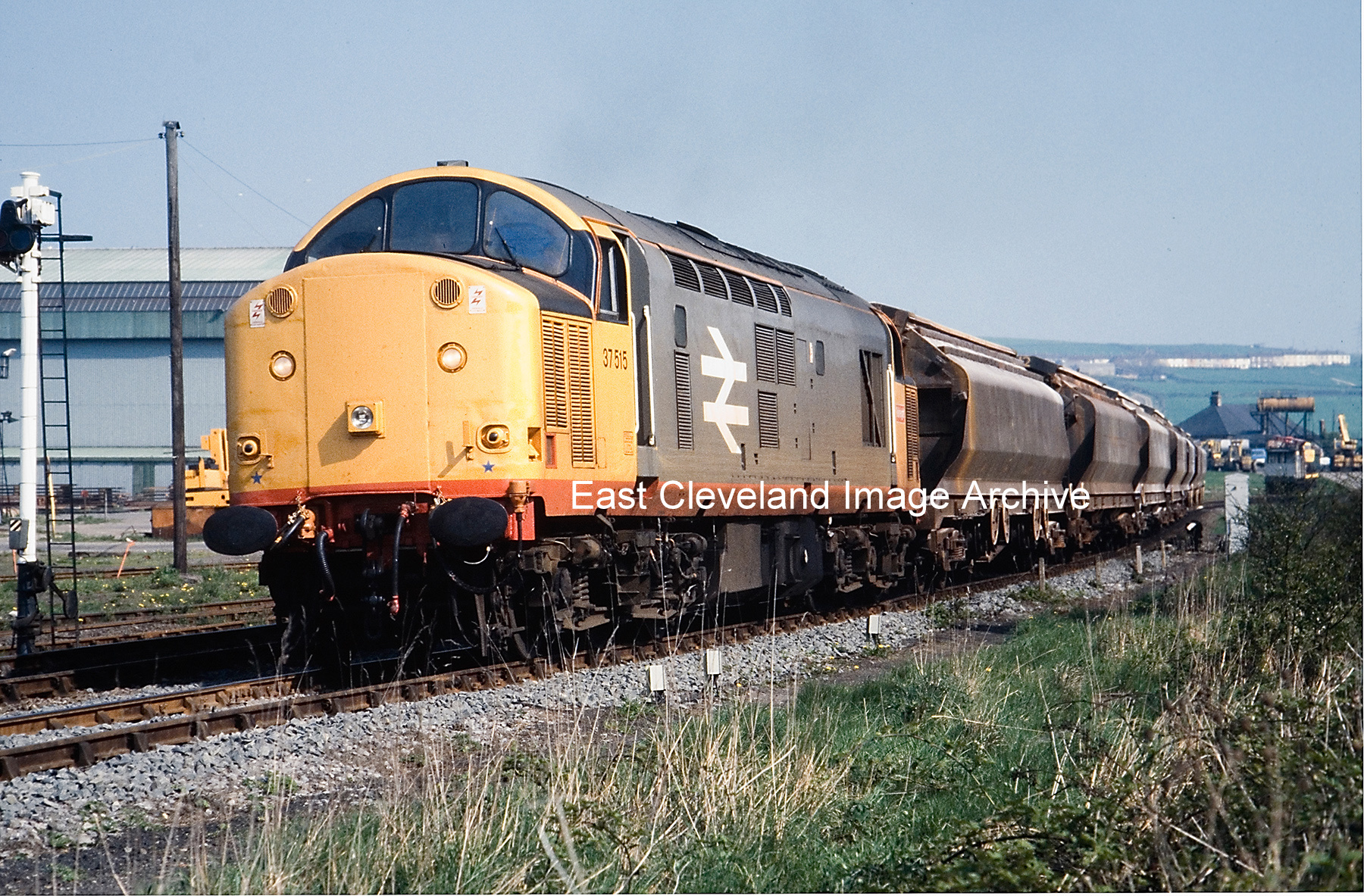 A Class 37 Diesel locomotive, number 37515, passes through Carlin How with a trainload of Potash from Boulby. Notice the panel over the aperture left from the removal of the nose doors. 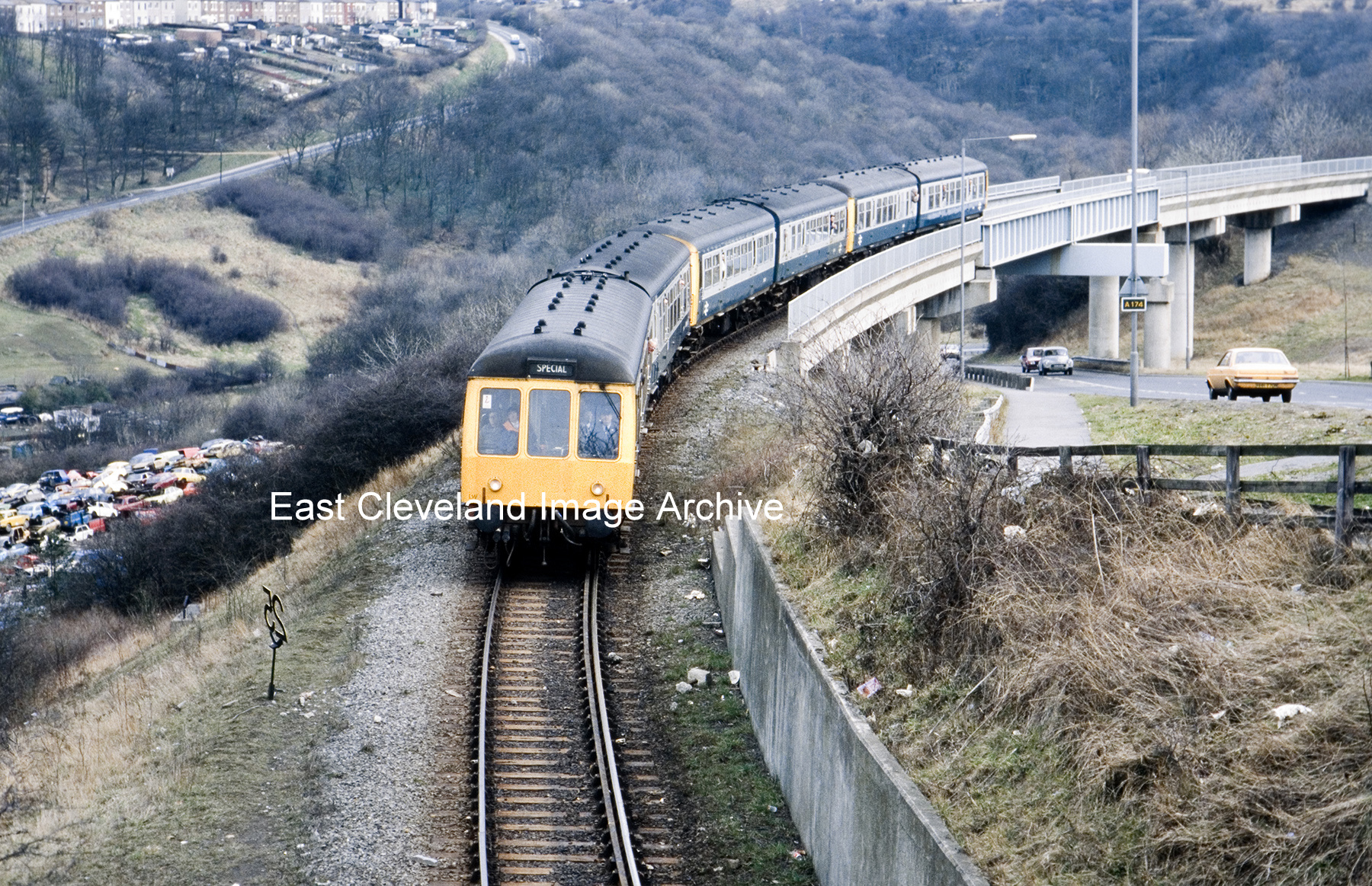 Taken from the bridge at Carlin How, a train spotter’s special, or was it for Cleveland Potash’s Open Day? Raymond Brown tells me it’s from the early to mid 1980’s – the DMU colour scheme fits that era anyway! Image and information courtesy of Raymond Brown. 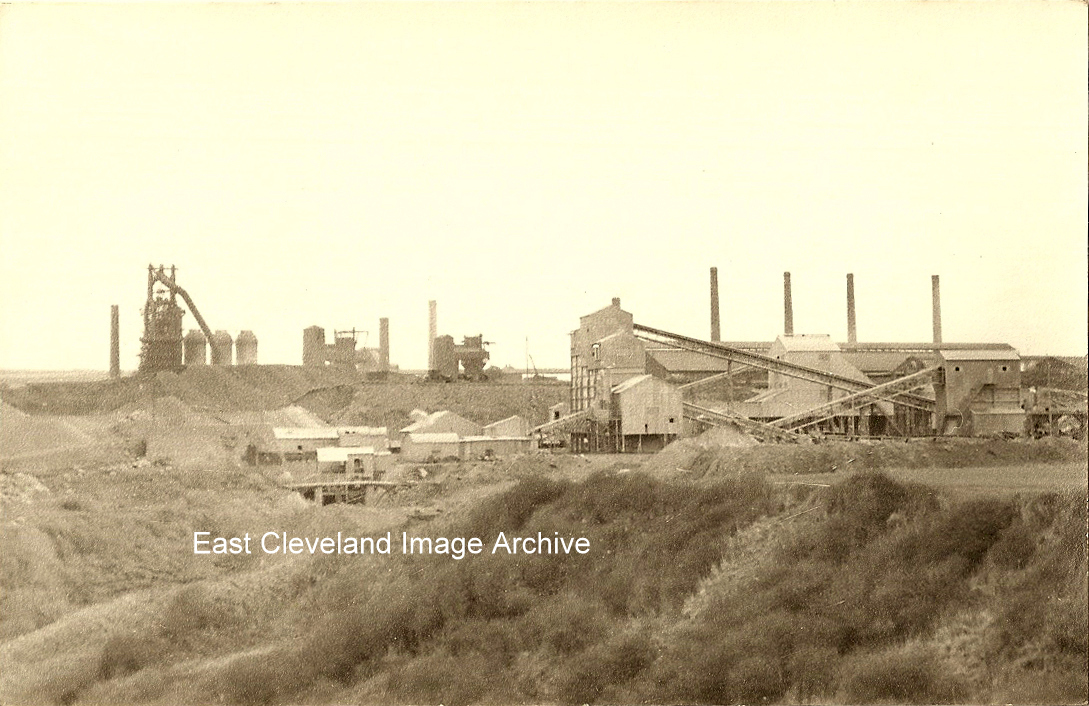 Here’s a view of Skinningrove Iron Works looking in towards the Tarmac road gravel plant. Unless I’m mistaken it shows No. 1, No. 3 and No. 5 Blast Furnaces, but no Sinter Plant, so it’s after 1950 and before 1958. Derick Pearson adds: “This shows no 5 Blast Furnace, Bill Norman his website of the wartime bombing made this report: ’25 July 1941, 0125 hours. 1HE and 1UXB fell some 250yds from No.5 blast-furnace, Skinningrove Ironworks. 1HE also dropped near Low Farm, Brotton. In neither case were casualties or damage inflicted.’ For the unlearned HE means High Explosive Bomb and UXB refers to Unexploded Bomb. Image courtesy of Bob Proctor, thanks to Derick Pearson for the update.
This view of Guisborough was posted in 1914; Westgate is much the same today, but this street scene is very different; the traffic leaves fumes rather than deposits! Image courtesy of Tina Dowey. 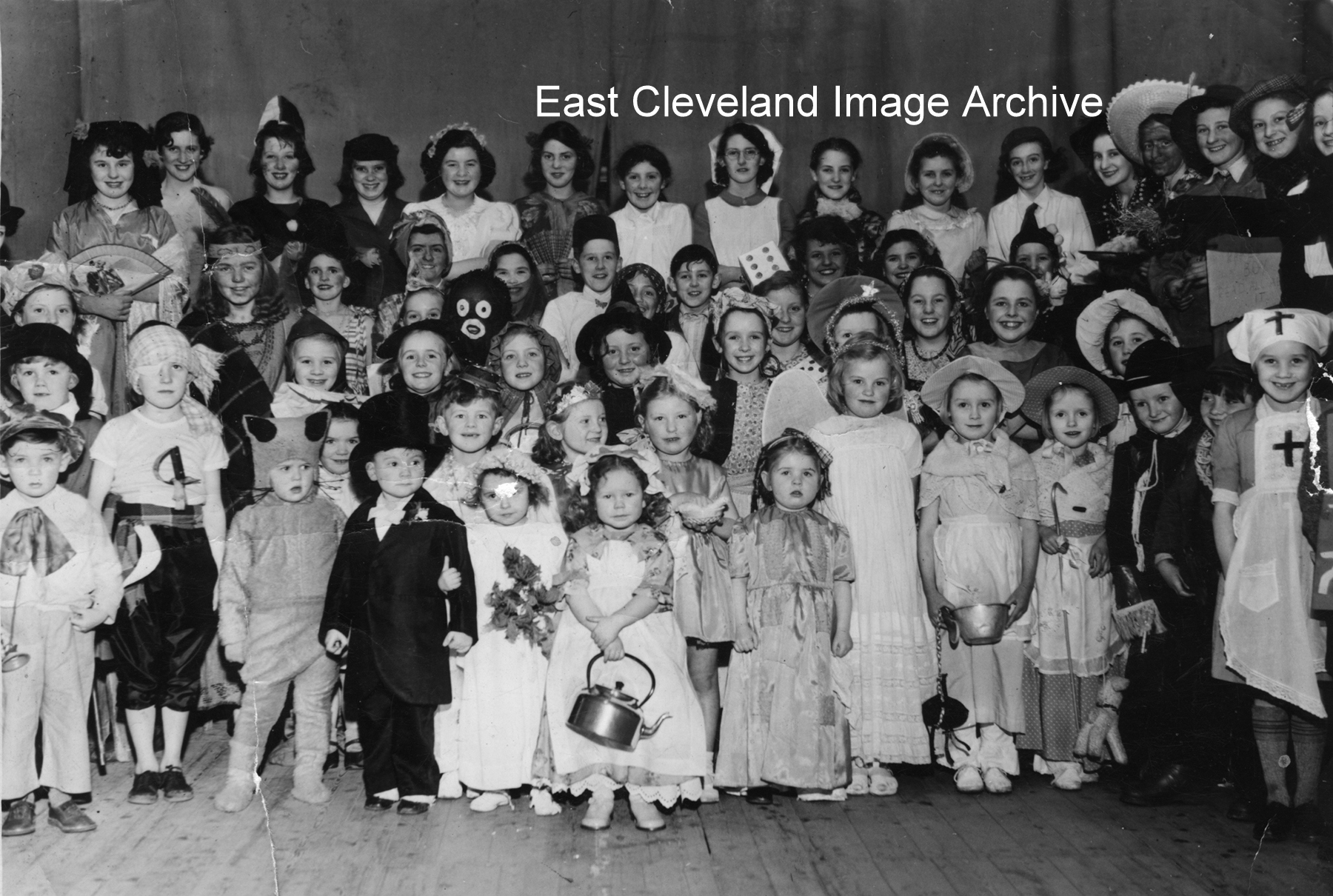 A good turn out for this children’s fancy dress held it is believed in the original St Margaret’s church hall to the rear of the church on the High Street in Brotton. Jean Sayers is the little girl in the front with the kettle (Polly put the kettle on!). Can anybody advise on names? Reg Dunning says ”Fifth from the left at the back is Sheila Bennison and the nurse on the back row is Hilary Jackson”. Image courtesy of Raymond Brown and thanks to Reg Dunning for the update. 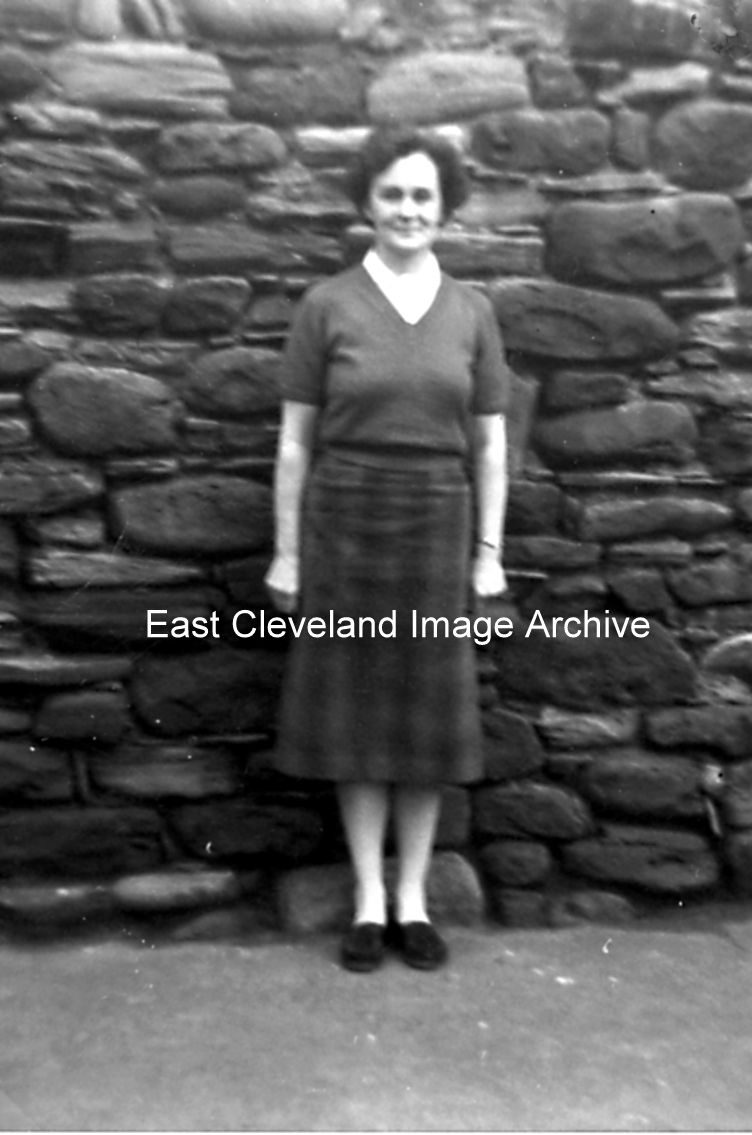  In 1899, land was set aside for building a church for Carlin How and Skinningrove. The foundation stone was laid on the eve of Ascension Day; Wednesday May 23rd 1900, by Mrs Dorman of Grey Towers, Nunthorpe. The church was consecrated on the 30th October 1901, by the Bishop of Hull Rt Rev R.F.L. Blunt. D.D. Andrew Downs advised the Archive: “St Helen’s church was built in the plain Early English style, characterized by it’s tall lancet windows, and rounded arches. The inside however, is not so plain, and is a beautiful parish church. The architect was A. Crawford-Hick of Newcastle, who built a far grander church – St Aidan’s – Leeds; that has very similar detail. The reason for it being built so close to the steel works, was simple, the steel works gave the patch of land for free!!” Image courtesy of Raymond Brown and update courtesy of Andrew Downs. 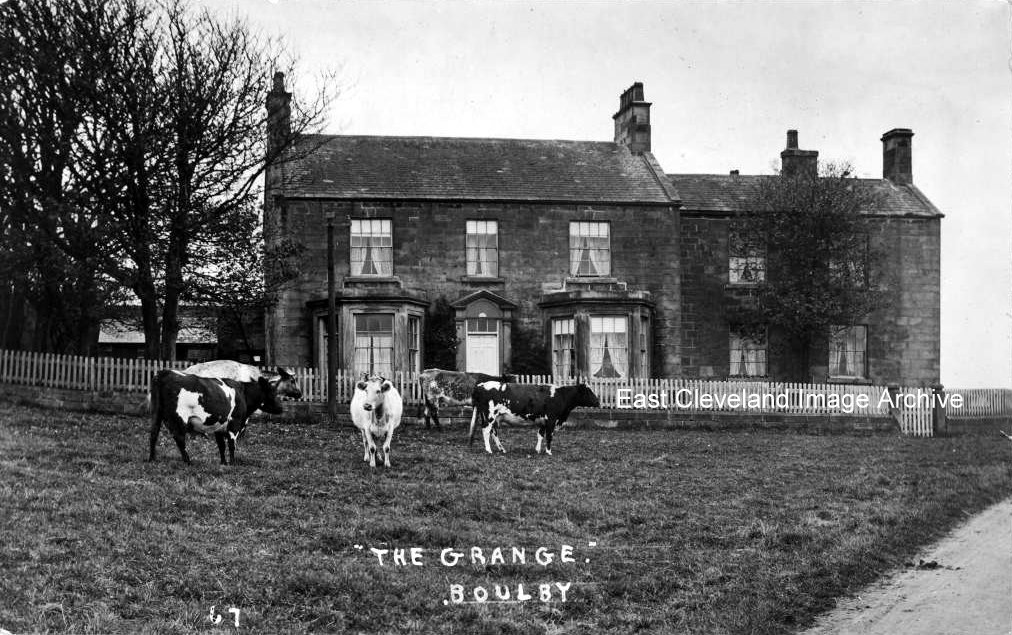 A picture postcard of Boulby Grange, a former Georgian farmhouse (Grade II listed) taken from The Cleveland Way. Paul Dodsworth tells the Archive: “Regarding Boulby Grange; my grandfather, Robert Dodsworth was a Police Inspector covering the area of Loftus, etc., and during the Second World War was put in charge of the movement of meat, as everything was rationed and he was based at Boulby Grange. I, Paul Dodsworth his grandson had the pleasure of visiting the property as a kid. I seem to just remember a orchard and if I am not mistaken there was a marble fireplace in one room; also I remember something about secret passages”. Image courtesy of a supporter of the Archive and many thanks to Paul Dodsworth for the update. 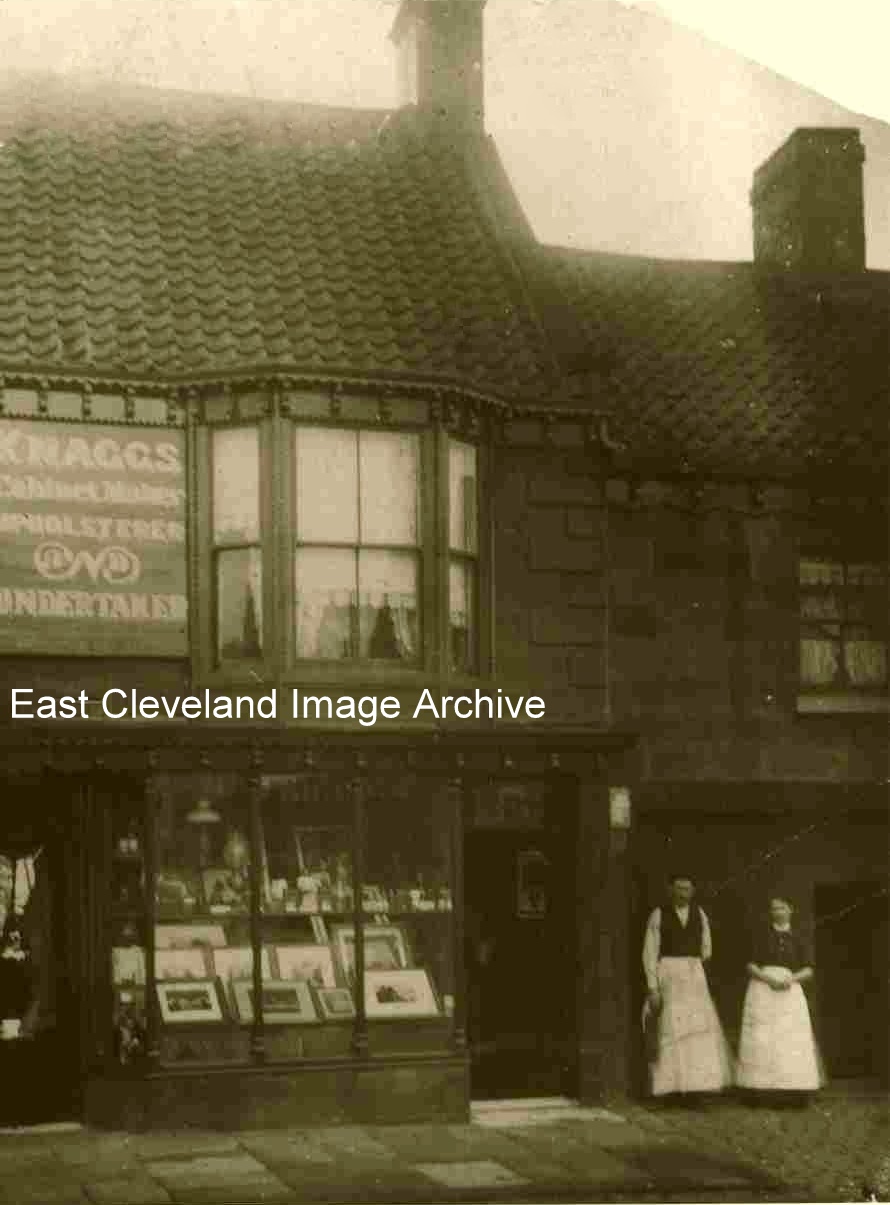 J. W. Knaggs (Upholsterer, cabinet maker and undertaker) with his wife Elizabeth Mary; pose outside their shop at 59/61 Westgate, Guisborough. He was Parish Clerk to Guisborough Parish Council for 13 years until his death in 1885. His wife and family carried on the business until its closure in the 1960’s. Image courtesy of J W Knaggs from an original image courtesy of Kirkleatham Museum collection. |
||
Recent Comments